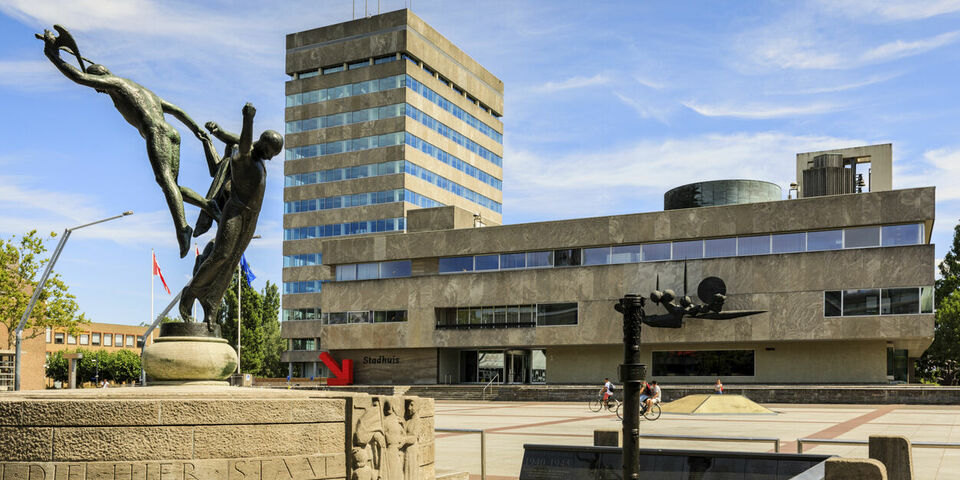Answers to council questions about physical confrontation during protest
The council questions submitted by GroenLinks and Partij voor de Dieren following the actions by security officers and TU/e board president Robert-Jan Smits during the climate protest of 11 May have been answered. The Eindhoven political parties wanted to know why security and the board president had intervened physically and whether the municipality is willing to talk to TU/e about the right to protest. The municipal executive is of the opinion that everyone has to make efforts towards preventing physical confrontations and indicates the municipality and TU/e already discussed this subject in the past.
The municipality of Eindhoven says it is disappointed by the incident of May 11, when two students were dragged from a board room in Atlas. “Everyone has to be committed to preventing physical confrontations. Freedom of speech and of manifestation are paramount, as long as these rights are exercised within legal boundaries of course. The executive is hopeful that TU/e and University Rebellion remain in dialogue about the substance of the matter and about the way in which protests can be held within the university buildings.” The municipal executive also indicates the municipality, TU/e and the police were in contact during the protest. The police did arrive on the scene but did not intervene, unlike security and the board president. The students have pressed charges against the latter, and the matter is currently under investigation.
Court ruling
The right to protest and how this is facilitated was a previous topic of discussion between the municipality of Eindhoven and TU/e following the police intervention in March of 2022. At the time, the judge found this to be disproportionate and unlawful, ruling that the students’ right to protest must be facilitated. This also sparked a number of council questions. The municipality thinks prior notification of a protest would contribute to its facilitation: “The municipality and TU/e have talked about this subject before, including the associated rights, responsibilities and allocation of tasks. Prior notification of a manifestation ensures discussions can take place and everyone is better able to prepare for their task. No such notification had been given for this protest.” The latter is correct, but despite requests by government bodies to be notified beforehand, this is not a legal requirement, nor does the absence of a notification constitute grounds to forbid or end a protest.
Finally, the parties wanted to know if the climate ambitions will be a broader subject of discussion, i.e. whether more educational institutions will be involved. The municipal executive indicated that there is a willingness in this respect and that these discussions are already being held in the context of the city climate agreement.


Discussion